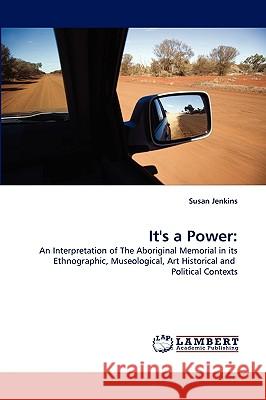It's a Power » książka
It's a Power
ISBN-13: 9783838324685 / Angielski / Miękka / 2010 / 404 str.
This manuscript focuses on a major Australian work of art: The Aboriginal Memorial. The installation of 200 hollow log coffins was made by 43 artists from Central Arnhem Land, in Australia's bicentennial year of 1988, to represent 200 years of European settlement and commemorate all the Indigenous Australians who died as a result of conflict, but were denied burial rites. It proposes that there are other ways to look at The Memorial, both in form and content, than have previously been investigated. These are therefore examined and argued in this work, while attention is paid to such issues as Yolngu mortuary practices, the influence of European settlers on traditional practices, the entry of such mortuary pieces into the public and gallery domain, a clan-based interpretation of the imagery on the hollow logs and memorialisation (in western culture). The Aboriginal Memorial is on permanent display at The National Gallery of Australia.
This manuscript focuses on a major Australian work of art: The Aboriginal Memorial. The installation of 200 hollow log coffins was made by 43 artists from Central Arnhem Land, in Australias bicentennial year of 1988, to represent 200 years of European settlement and commemorate all the Indigenous Australians who died as a result of conflict, but were denied burial rites. It proposes that there are other ways to look at The Memorial, both in form and content, than have previously been investigated. These are therefore examined and argued in this work, while attention is paid to such issues as Yolngu mortuary practices, the influence of European settlers on traditional practices, the entry of such mortuary pieces into the public and gallery domain, a clan-based interpretation of the imagery on the hollow logs and memorialisation (in western culture). The Aboriginal Memorial is on permanent display at The National Gallery of Australia.











